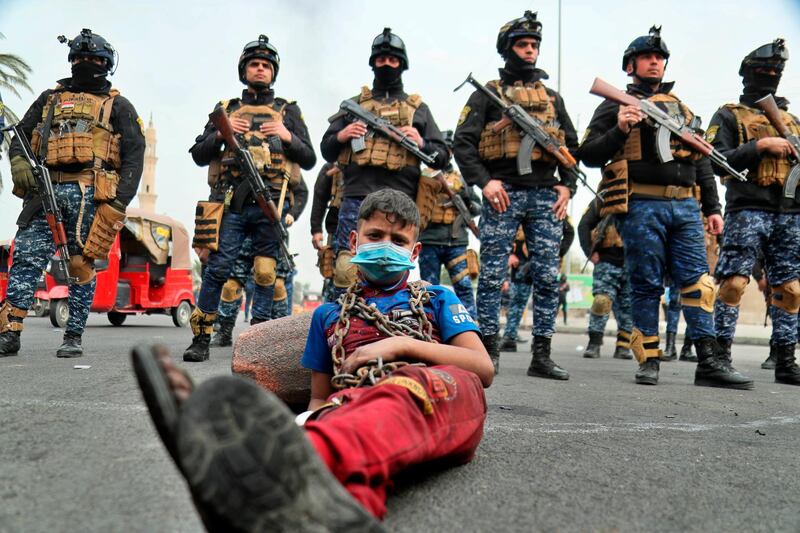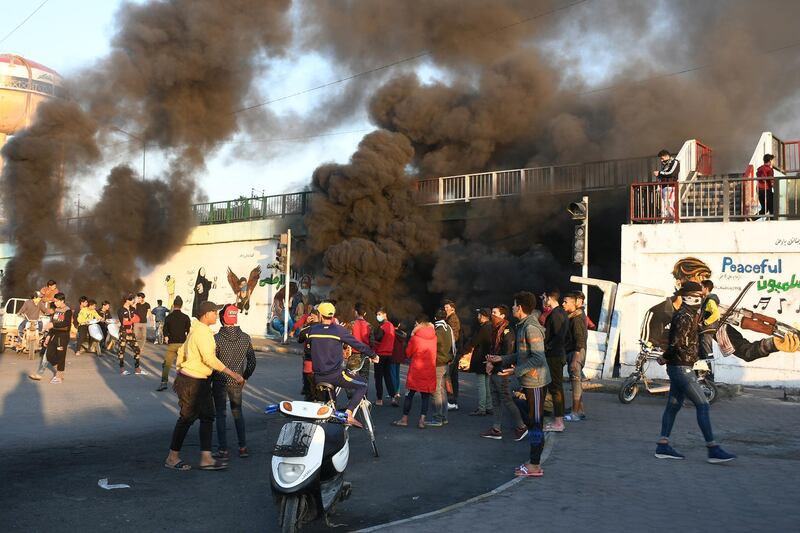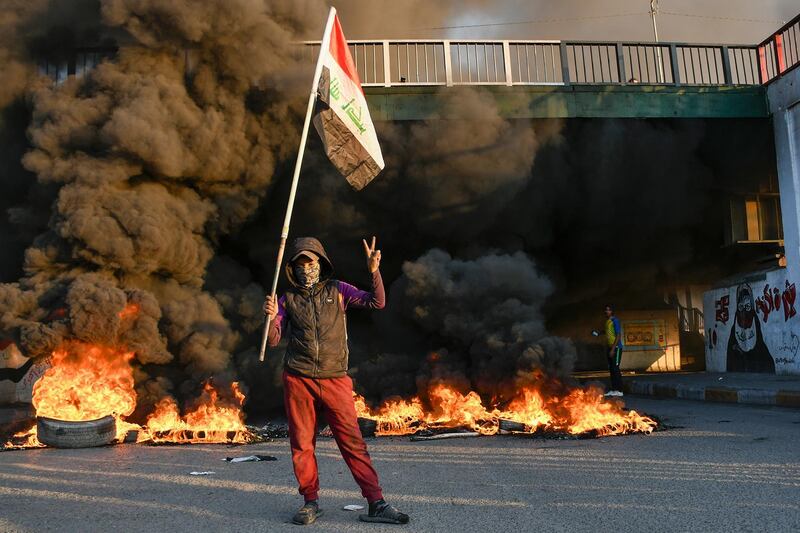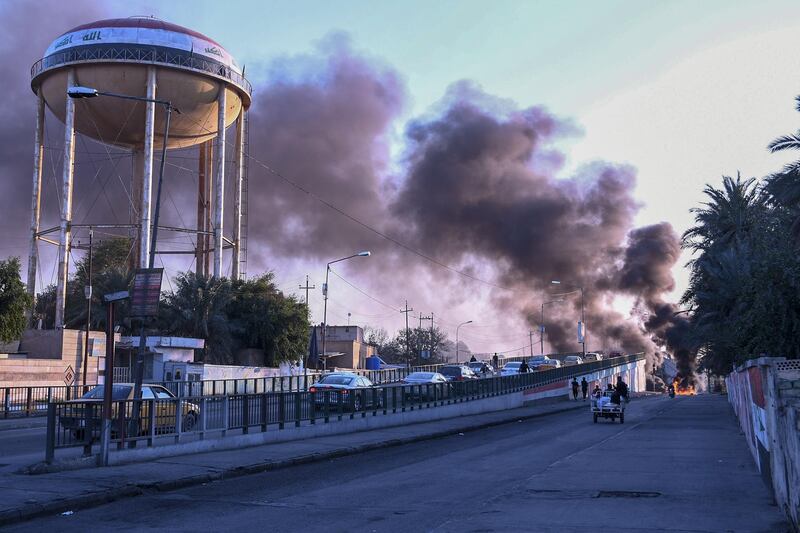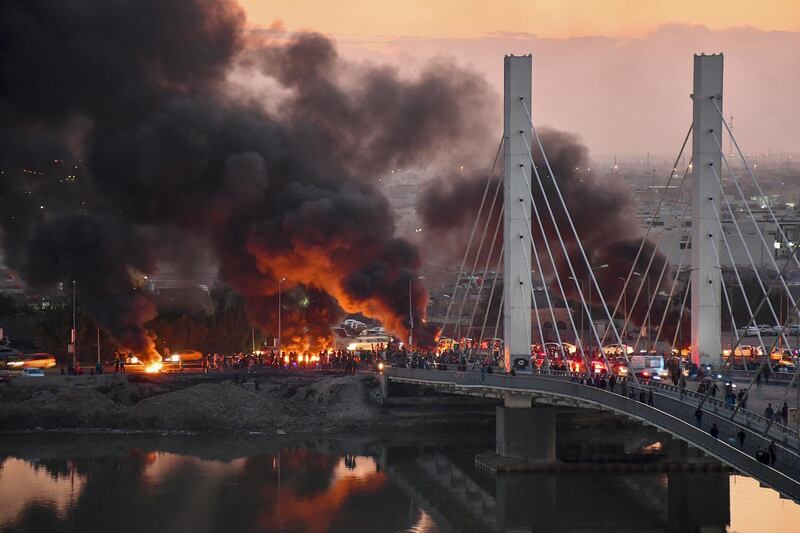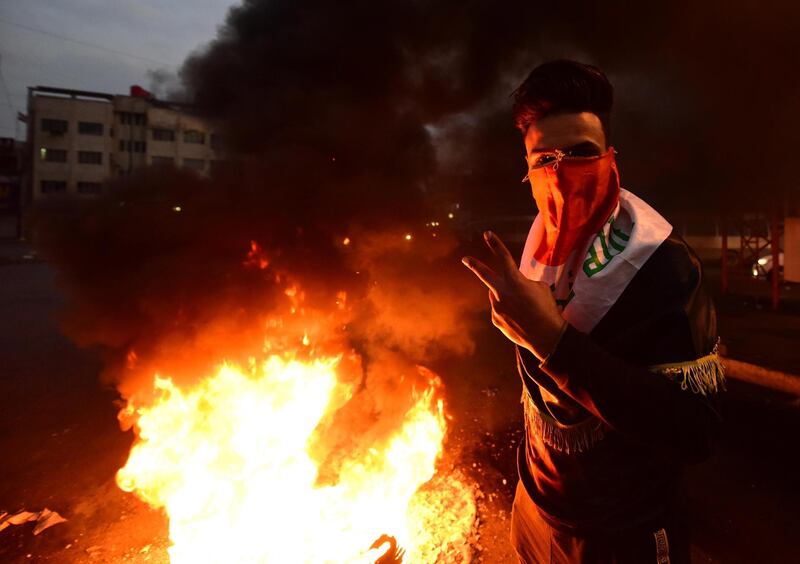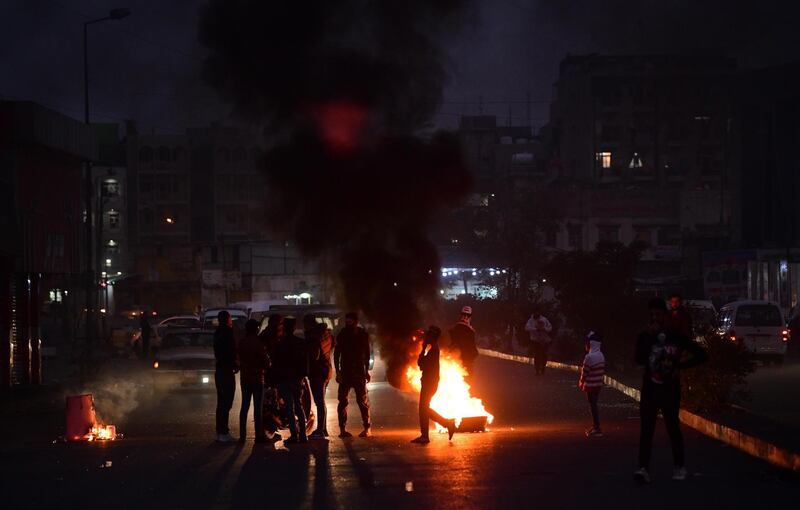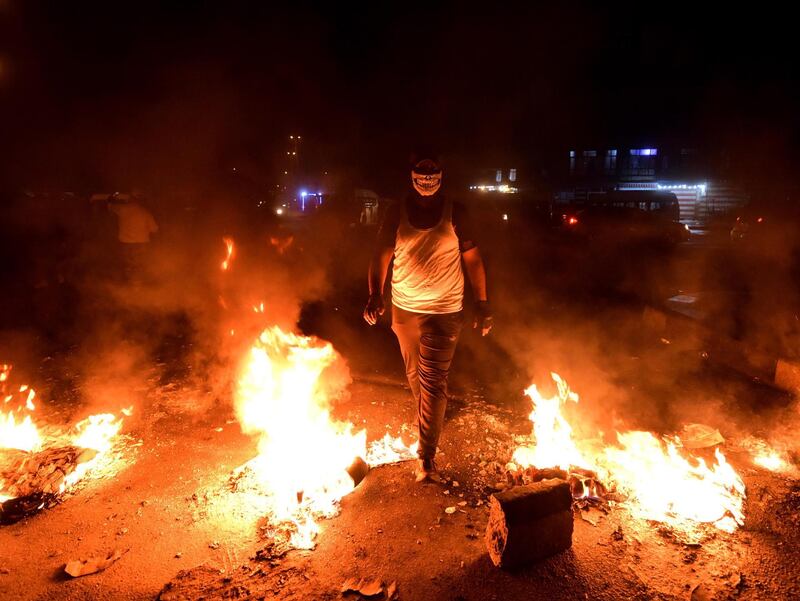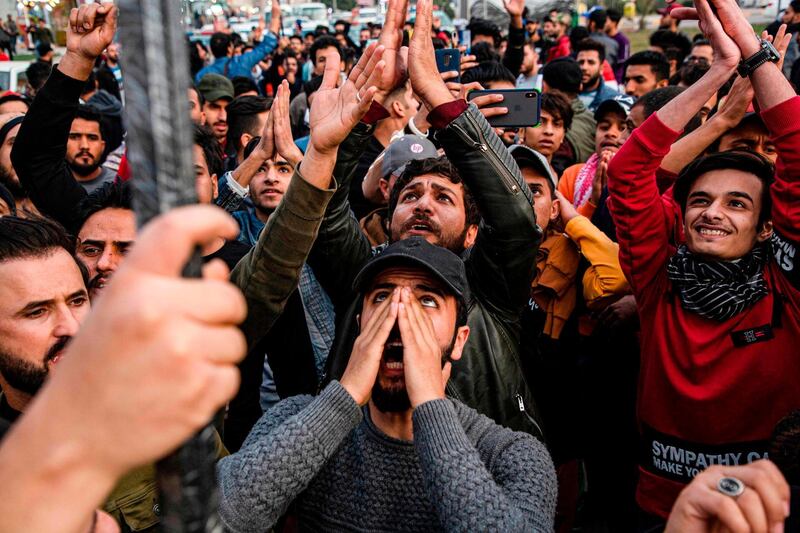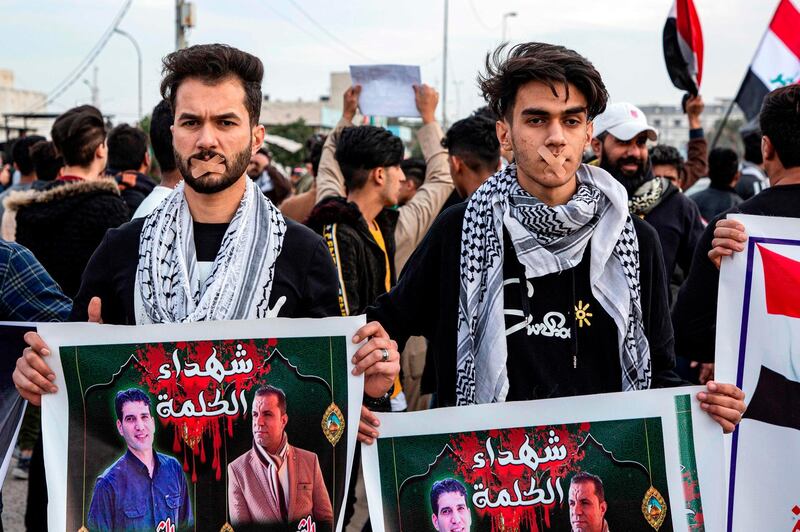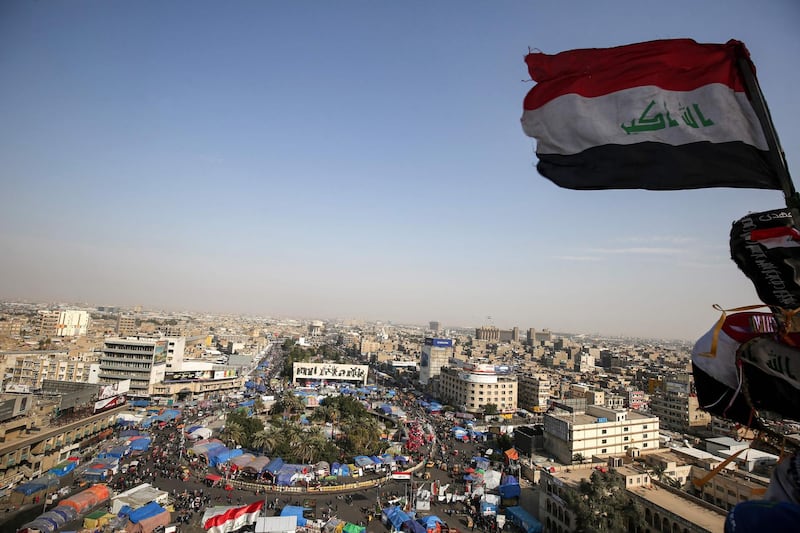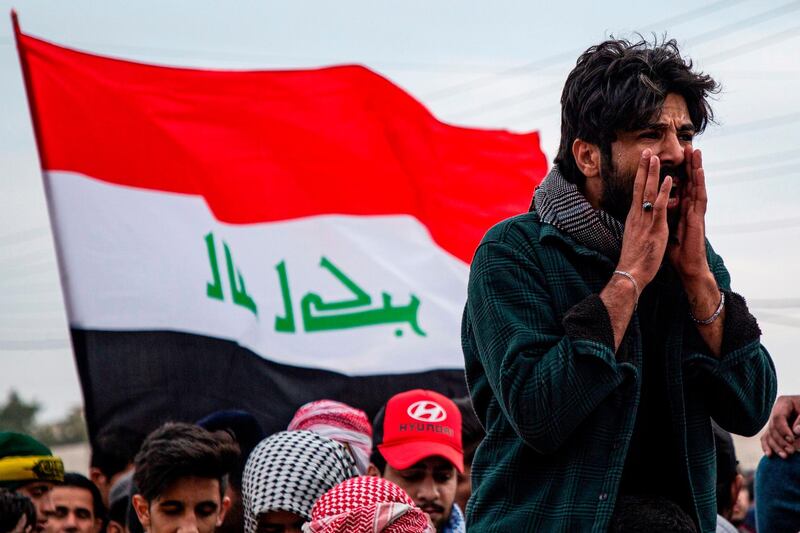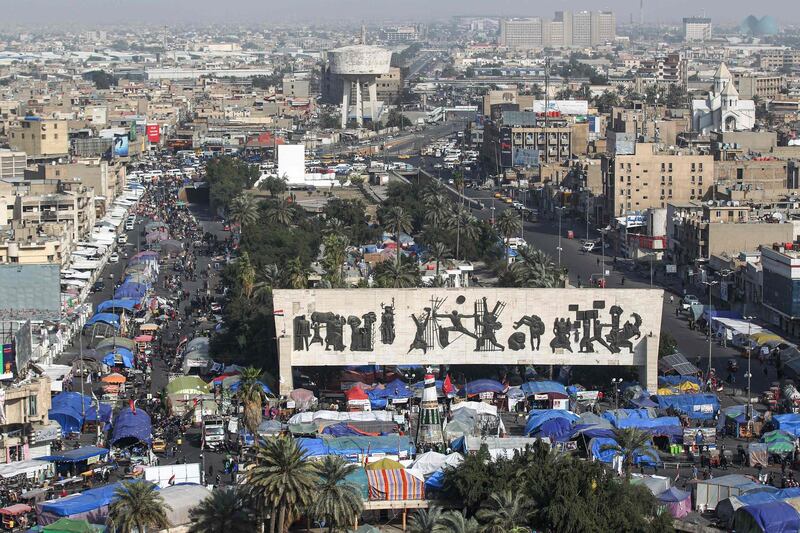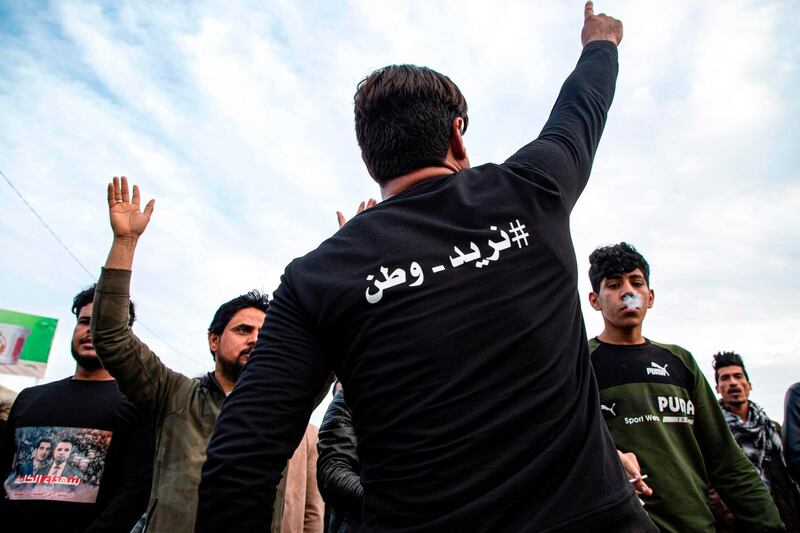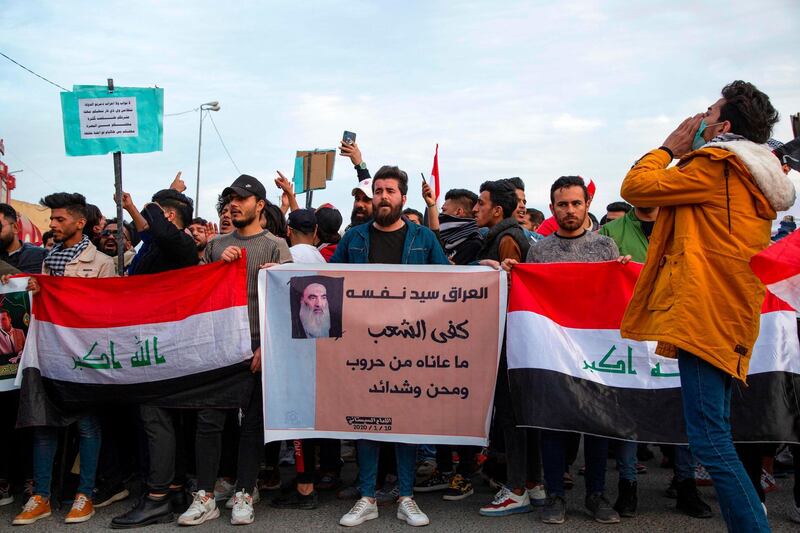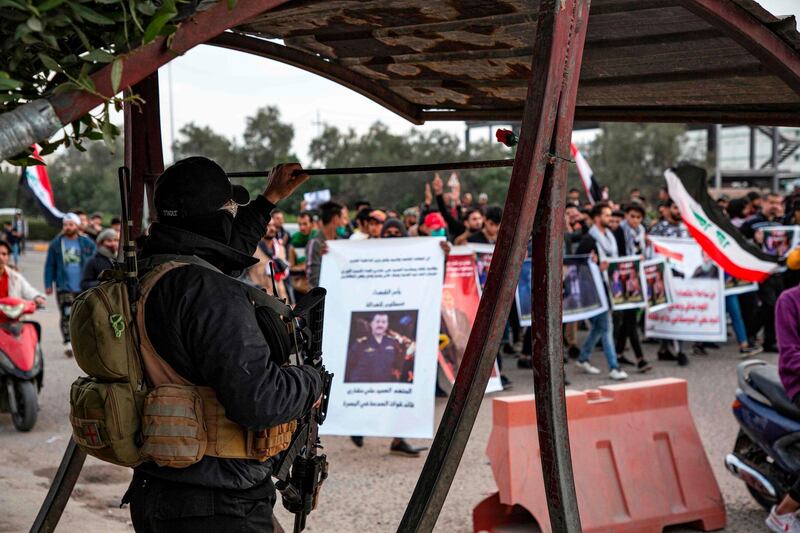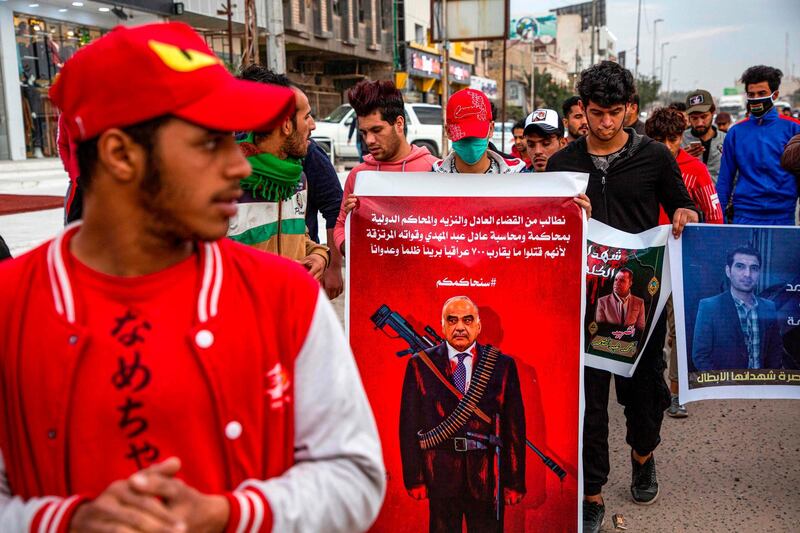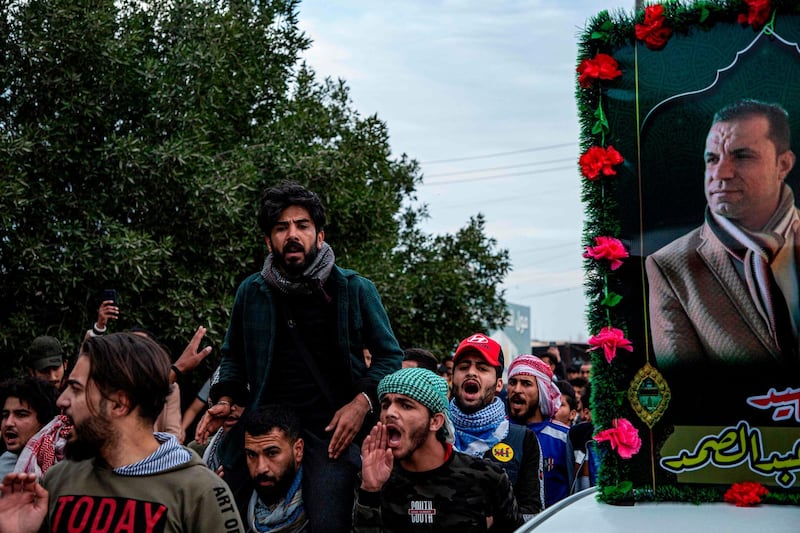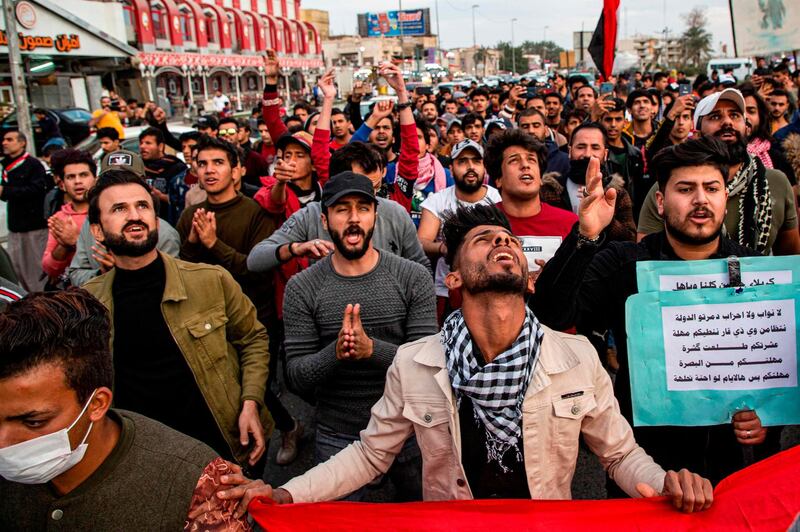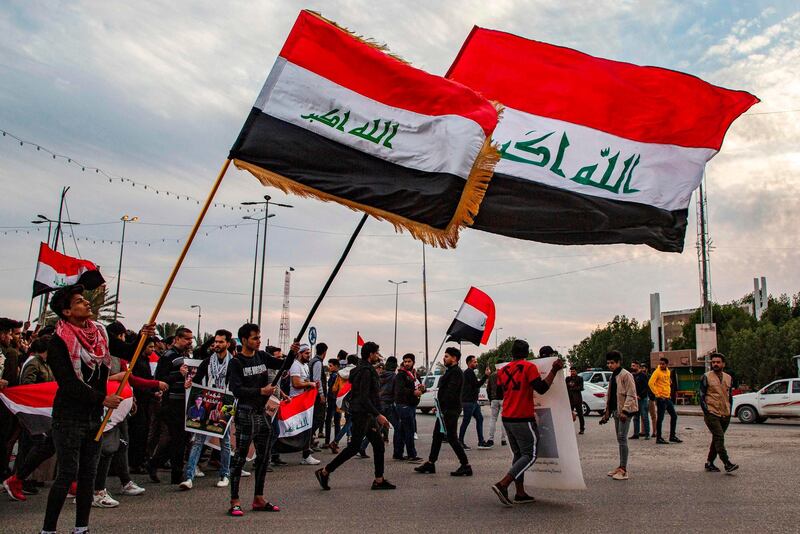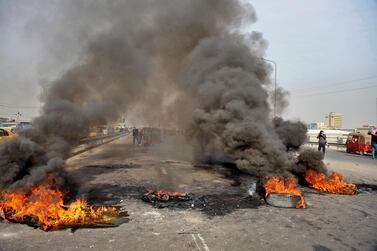Iraqi journalists are speaking out against government failures to respond to waves of life-threatening attacks on the press for simply conducting their job.
Reporters believe the importance of highlighting their plight and the dangers they face, although risky, will be the only way to bring about changes to the system.
Four journalists have been killed since the start of the demonstrations in early October and dozens have been targeted and silenced for their coverage, according to press freedom and human rights groups.
Among them were Ahmad Abdelsamad, a 39-year-old correspondent for local television station Dijla, and his cameraman Safaa Ghali. They were shot dead by unknown gunmen for covering the government’s crackdown on demonstrators in the southern city of Basra.
Their assassination has drawn widespread condemnation of the government’s failure to provide protection for journalists whose reporting asks questions of the Iraqi elite and its backers.
During the last few years, various television and radio stations have come under attack, while political groups have been pressuring reporters and threats and intimidation has become part of their daily lives.
Angry Iraqis are demanding an overhaul of a political system they see as corrupt amid escalating US-Iran tensions.
The plight of Iraqi journalists has become apparent as the press continues to challenges the country’s political elite to answer to demonstrator's demands.
Iraqi reporters told The National of the daily challenges they face in the quest to provide in-depth coverage.
Steven Nabil, one of Iraq’s well-known journalists, who currently works for Al Hurra, has faced intimidation, death threats and harassment after authorities blocked off internet access in the face of protests.
"I used my sources on the ground to get videos showcasing the violence against protesters, the coverage made the government and allied political entities upset and the attacks started," Mr Nabil told The National.
The Iraqi reporter said the attacks started after the Iranian News Agency Fars accused him of being a CIA agent “that is plotting to rid Iraq of Iranian influence”.
“Their public article was followed by orchestrated videos and sponsored Facebook advertisements that targeted me and other journalists."
Mr Nabil believes the attacks and smear campaigns are conducted by “electronic troll armies that belong to Iranian backed militias and political parties in Iraq”.
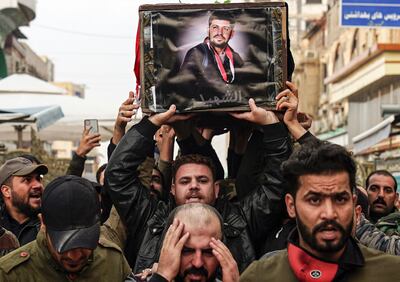
Tensions between Washington and Tehran has recently heightened following the US killing of an Iranian commander Qassem Suleimani.
The strike also killed top Iraqi paramilitary commander Abu Mahdi Al Muhandis, deputy head of the Hashed Al Shaabi military network, which is dominated by pro-Iran factions.
“Some of the threats carry with them pictures of the sender guarding the likes of Qassem Suleimani and others, in an indication of their power and ability to silence any journalist willing to expose the truth,” he said.
Many journalists have fled Iraq seeking safety elsewhere.
“For my personal safety, I am reporting from outside the country, I have been threatened that I will be killed immediately upon my return to the country,” Mr Nabil said.
The government has done nothing to offer and provide protection for media personnel.
Mr Nabil claims that entities connected to the government continue to attack journalists and bloggers on TV channels “without any preventive actions from the Iraqi authorities”.
It has led Al Hurra news station, which is a non-profit corporation financed by the US government, to scale down its operations in Baghdad due to security concerns.
The news station believes that the Iran-backed Iraqi militia commander Qais Al Khazali has issued documented threats against its staff.
“Al Hurra has been a very caring and supportive channel, they review any threats against the staff and take everything very seriously without leaving staff safety to any chance,” Mr Nabil said.
The network said it will review its Baghdad field operations when the security situation improves and Iraqi journalists can “practice without fear and threats.”
The Committee to Protect Journalists (CPJ) have launched campaigns to draw attention to the issue and to press Iraqi authorities to hold those who are threatening journalists to account.
"Journalists should not be used as pawns in the political game," Ignacio Miguel Delgado, CPJ's Middle East and North Africa representative, told The National.
Mr Delgado said the CPJ is aware that local journalists are receiving threats for either covering or supporting the protests.
“The feeling of insecurity, especially on the first weeks of the protests, was widespread and forced many of them to leave Baghdad for safer destinations inside and outside Iraq. In some instances, journalists and researchers have been the target of online smear campaigns accusing them of working for foreign powers,” he said.
“In Iraq, nobody has ever been prosecuted for crimes against journalists,” Mr Delgado said.
Various reporters have come under attack for simply taking sides, an Iraqi journalist, who choose to remain anonymous for security reasons, told The National.
“We stayed away from Tahrir Square during the first few weeks of the protests because those that cover the protests were targeted by the Iranian-backed militias,” the reporter said.
Although the government has announced it will open investigations into the killing of reporters, little has been done to bring the perpetrators to justice, the reporter said.
“A foreign reporter came under attack for covering the first few days of the protests, he fainted in Tahrir Square after getting hit on the head and was taken to the nearest hospital,” said the journalist.
Lack of press freedom in Iraq will result in a negative evaluation of democratic freedoms in the country, said Ali Al Bayati, a member of Iraq’s Independent High Commission for Human Rights.
"The government must protect and guarantee a safety net for their [media] work as part of its democratic landscape," Mr Al Bayati told The National.
Iraq is currently ranked near the bottom of Reporters Without Borders’ (RSF) media freedom index.
It owes its current ranking of 156 out of 180 countries to routine attacks, arbitrary detentions and intimidation of journalists by militias and pro-government groups, according to RSF.
